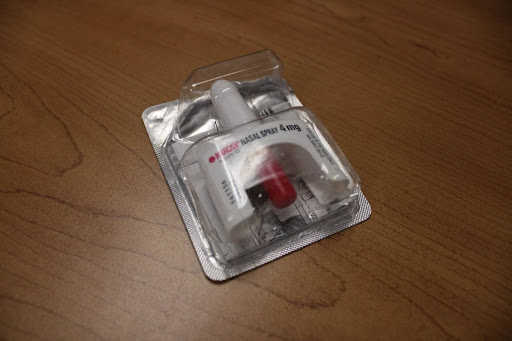
Beneath the pulse of music and a flicker of lights, a student party quickly became the scene for teenage substance abuse. Within this scene of drug abuse and underage drinking, “Sarah,” a pseudonym for a sophomore student who wishes to remain anonymous, faced conflict.
According to Fairfax County Youth Substance Use Trends, there were 17 fatal overdose investigations in 2022.
“It was a party setting, and there were lots of people from our school there. There were [illegal] substances and [alcoholic] beverages. I drank a little which backfired. I was taken advantage of by another person,” said Sarah.
Sarah shared that she felt immediate disorientation after drinking and taking caused by intoxication. The experience left her shocked and confused.
“I was in a daze and did not really know what was happening. It hits me later and that’s kind of the worst thing about it. At the moment, everything might feel happy, but once the things wear off, everything hits you like a big truck,” said Sarah.
The risk of using laced substances often occurs. The reality is fentanyl, a potent and sometimes fatally addictive drug, is often present in drug supplies.
“Many people don’t understand that as far as marijuana goes, it’s now being laced with fentanyl. People don’t realize this and end up getting hooked on fentanyl, which can actually kill you,” said School Resource Officer Joe Plazio.
While the risks of drug use run high, students may be persuaded to take part in these activities due to pressure from fellow students. Substance abuse prevention specialist Ken Johnson cites the subtle yet powerful force of peer pressure.
“Peer pressure may be more implicit and covert than [students realize]. Someone may feel pressured simply because it feels like ‘everyone is using [substances],’” said Johnson. “The unfortunate thing about believing ‘everyone is using’ is that most FCPS students don’t use drugs, but because some of the drugs students use can lead to overdose, the consequences are more severe.”
While peer pressure can cloud judgment, choices can also be influenced by anecdotal evidence and advice from previous generations. Sarah found clarity with words from the past.
“I know it’s silly, but I started living by the Nancy Reagan slogan ‘just say no.’ Adults teach us this, and they know. If your friend tells you not to do it, then you shouldn’t because they would know too,” said Sarah.
School staff or family members may guide students to seek advice for their futures, not just their present. Plazio offers final advice to students grappling with this conflict.
“I would tell students who are going through a substance abuse-related problem to look at the bigger picture,” said Plazio. “You’re young, and you have your whole life ahead of you. Don’t make a choice that may affect the rest of your life.”
If a student is struggling with a substance abuse-related conflict, they may contact the Substance Abuse and Mental Health Services Administration at 1-800-662-4357.







